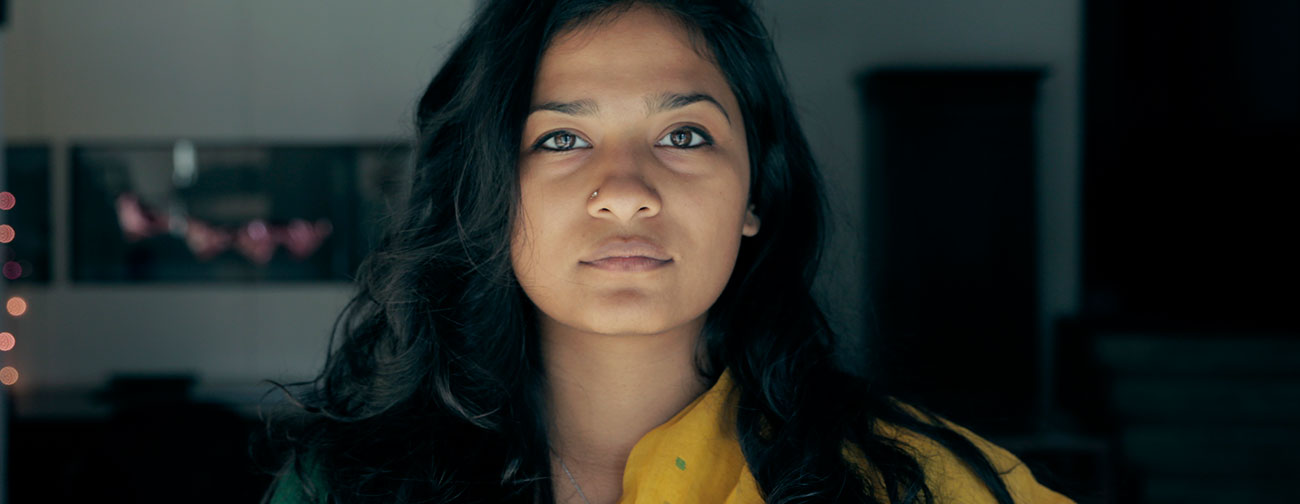Sign up for the daily CJR newsletter.
BuzzFeed News is ramping up its international coverage of gender and power. Nishita Jha, an Indian journalist based in Delhi, will be the outlet’s new global women’s rights and gender reporter, joining a foreign bureau led from New York by Miriam Elder.
BuzzFeed News structures its global beats thematically rather than regionally, so Jha will be reporting from around the world on stories that use gender not as a topic but “as a way of seeing the world,” as she says. She joins a team of nearly two dozen reporters and editors scattered across six continents, filling the role vacated by Jina Moore, who decamped to The New York Times in August. In a note to staff, Elder says that the role has always been central to BuzzFeed’s coverage, but that it has taken on a special resonance amid the global conversation on sexual harassment that began this fall.
ICYMI: A “potentially seismic” change comes to Facebook
Jha tells CJR that she plans to push beyond coverage that too often focuses on women as “victims of terrible circumstances or victors despite those circumstances.” She’s also preparing her two cats for more time on their own as she takes on her globe-trotting role. Jha spoke with CJR by email from India. The following conversation has been lightly edited for length and clarity.
You’ve spent the past decade in India reporting on a variety of topics, from border violence to Bollywood. Are there specific stories you’ve worked on that have prepared you to take on your new role?
I realized fairly early on that while there is a surfeit of stories about gender—female feticide, rape, menstrual health, pregnancy and dowry deaths—I really wanted to look at the way the big issues of our time affect women and the way that women interact with the world. So, for instance, rather than writing only about the fact that the police are hostile to women who report violence in India, I spent two nights riding in police cars through Delhi to understand what they deal with, why they’re often “late” to respond to distress calls, and why there aren’t enough policewomen on the ground. (The answer, by the way, is shocking but not surprising—there aren’t enough public toilets for women in the city, and the police says it can’t keep its own female police officers safe.)
I’d say this has been the broad theme of my work as a reporter: Gender is a lens that reveals more about stories than we’re used to seeing. When India’s Prime Minister Narendra Modi demonetized India’s ₹500 and ₹1,000 banknotes, I wrote about the way this affected women in abusive homes who stowed away cash for survival; the way it diluted the bargaining power of sex workers, making them vulnerable to violence and AIDS.
Unless writing about political parties or from conflict zones, the work of women journalists is often written off as not being hardcore enough. I love culture reporting too, because it holds up a mirror to society. In this sense, writing about Bollywood’s deeply misogynist and problematic superstars has been great!
RELATED: Europe tries to fight harassment and fake news without killing free speech
On a practical level, how do you think about your beat? “Women’s rights and gender” is a broad topic. Are there specific threads you plan to focus on?
It isn’t a topic as much as a way of seeing the world. The work of my predecessor at BuzzFeed News, Jina Moore, has been such a fantastic example of how to do that. One thing that excited me about BuzzFeed News was their approach to coverage: There’s no mandate on how many stories on a certain topic a reporter has to cover, rather, it’s the reporter’s job to find interesting stories that will have an impact in the world or that would otherwise go untold, and then tell them in a compelling way for our readers. Broadly speaking, I’d love to do as much work as possible on climate change, health, the refugee crisis, the intersection of technology and gender…I could go on.
Foreign correspondents exist because news stories can affect and resonate with readers anywhere.
You’re based in New Delhi, but the beat is a global one. While allowing for the unique cultural and political circumstances of individual countries, do you see the stories you plan to cover as being somewhat borderless?
I do. Foreign correspondents exist because news stories can affect and resonate with readers anywhere—even despite the unique political and cultural circumstances of a certain area. The struggle to access clean water for instance, is a struggle that unites approximately 2.1 billion people on the planet. In rural India, Afghanistan, Kenya, Bolivia and many parts of the world, the task of fetching and carrying that water, using it to clean and cook is one that is primarily carried out by women.
Just as the problems facing women around the world find resonance elsewhere, I believe their resistance does too. I hope to cover a lot more of that in my new role.
ICYMI: Reporter’s terrible error on a tech story goes viral
What are the problems you see with coverage of women in South Asia and around the globe? Are there trends you hope to push back against through your work at BuzzFeed News?
I’d say the problem is one of seeing the world in binary form. South Asian women, in particular, are always portrayed as victims of terrible circumstances or victors despite those circumstances. Not just internationally, but even in the national mainstream news in India. We’re all for celebrating the first woman to get a job or access a space traditionally held by men, but I don’t think that necessarily means having to examine what that uneasy negotiation looks like on a regular day, or the way caste, class, and race affect that access.
I’d like to be able to tell these complex stories without diluting them, because I wholeheartedly believe it is possible to do so. The book Daring to Drive by Manal al-Sharif, a Saudi woman’s account of what it took to get in the driver’s seat of her car (and also her life) is a great example of what I mean by complex stories. It’s easy to see the book and say, “Oh look! a Saudi woman driving, how inspirational!” or “How terrible that it’s so hard for her!” It’s easy to think that Al Sharif’s Western education and American contacts saved her in some sense. But her story only begins with that first act of resistance. The most incredible scene in that book for me is when she’s arrested and her interrogators ask her if she loves the King—the authority figure who’s basically responsible for the oppressions she and so many other Saudi women endure—and she answers that she does, and she means it with all her heart. It’s complicated and heartbreaking, and that’s what makes it very real.
Here in the US, we’re in the midst of a reckoning with regard to women and power. Do you see that conversation extending to other parts of the globe? If so, how have the reverberations from Weinstein and others manifested in the regions you’ll be covering? If not, what do you think it will take for those conversation to start happening?
In India, as a response to #MeToo, a long list of feminists and personal heroes shared stories of being abused, which was incredibly sad and simultaneously empowering to witness. Young women in academia put together a list of abusive professors in their universities and for my last few months at the Indian digital news website Scroll.in, we created a small team that worked exclusively to follow up on those accusations, holding universities accountable, investigating past complaints and the ways in which they had been handled or suppressed.
As we’ve seen in Hollywood, the reckoning is not just men vs. women but a fraught moment of acknowledging past hurt and calling out enablers and structures that allow abuse to thrive. There are Weinstein-like figures everywhere, and institutions that protect them. So simply put, there is still much work to be done.
The most incredible part of this huge conversation has been adding to our understanding of what sexual violence looks like: what kinds of behaviors qualify, the entire social spectrum of people that can be sexually violent even while being brilliant, charming, or cultured, and the vast range of coping mechanisms women deploy in order to survive. My first book, which I’ve been working on for four years and is finally near completion, examines specifically this idea—that women spend much of their lives and energy preparing against being attacked by a stranger, when in fact more than 95 percent of the time, we are violated by people we know. Naming your abuser, calling them out publicly or reporting them to the police, is in effect calling out an entire social network.
I think we’ll all be thinking about the way the post-Weinstein moment did or did not change things for women for several years to come.
Are your cats ready for you to be traveling a lot more?
Yes! My partner and I are both journalists and usually try to coordinate our travel schedules so one of us can hang with the cats. But when that’s not possible, we’re lucky that the people around us look past Mia and Fleabiscuit’s (minor) personality flaws and agree to babysit them.
ICYMI: Journalists share their favorite journalism movies
Has America ever needed a media defender more than now? Help us by joining CJR today.







